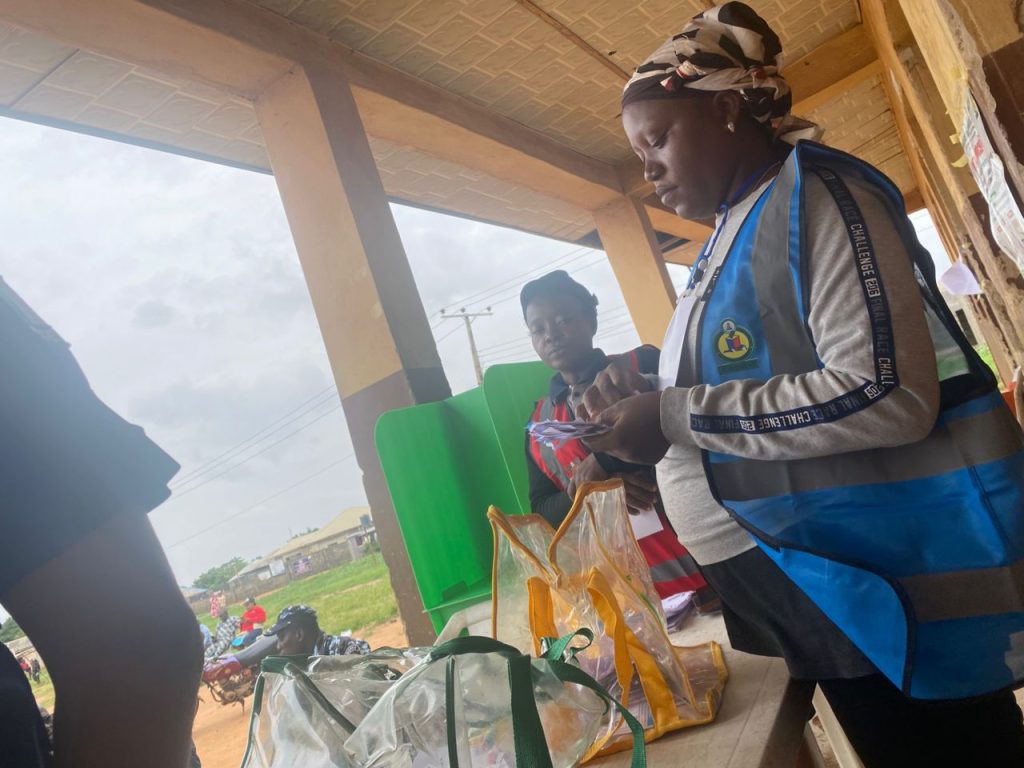On July 12, Lagos State Independent Electoral Commission commenced the Local government election in the 20 LGAS of the state as Lagosians were seen trooping out to exercise their Franchise.
At exactly 8 pm, voters had been seen around the electoral ground at Igbelaara area of Ikorodu, while the INEC officials also arrived at the venue at the stipulated time.
According to reports, the Lagos State Independent Electoral Commission (LASIEC) revealed that 139 candidates from 10 political parties contested chairmanship positions across the 57 Local Government Areas and Local Council Development Areas in the state.
In addition, 842 councillorship candidates from 14 political parties vied for seats in the 376 wards across Lagos. Out of the 19 political parties that initially expressed interest in participating, 15 submitted candidate lists.
The All Progressives Congress (APC) was the only party to field candidates in all 57 councils and 376 wards, making it the most widely represented political party in the election.
The People’s Democratic Party (PDP) also contested in 45 councils and 259 wards, while the Labour Party fielded 22 chairmanship and 130 councillorship candidates. The Zenith Labour Party presented six chairmanship and 21 councillorship candidates.
Speaking to New Daily Prime about the progress of the election, an INEC official, Eseji Linda, described the process as seamless and peaceful.
She added that the weather discouraged people from coming out to vote, as light rain occurred in many parts of the state. Additionally, many residents appeared uninterested in the voting process.
In an interview with a party agent of the APC, Balogun Kazeem Aramide, he stated that the APC was the only party represented at the polling unit, as agents from other parties did not show up. He added that the unit experienced low turnout, as some people arrived after the scheduled voting time and were not allowed to vote.
Recall that movement across Lagos State has been officially restricted from 6:00 a.m. to 3:00 p.m. today, as the state conducts its local government elections.
Residents speak about Lagos local govt election
In a similar interview, Aliyu Hassan, a resident of Igbelaara, told this reporter at the election ground that the electoral officers arrived at the polling unit around 8:00 a.m., and accreditation began immediately without delay, followed by the commencement of voting.
“It was a very peaceful election throughout the day. There was no shortage of equipment, and everything was well managed. However, we had a very low turnout in our area,” he lamented.
Adeosun Damilola, a nurse who works at the local government office, revealed that she had arrived at the polling ground by 7:45 a.m. She stated, “There was calm during the election, but the turnout was low. The economic situation discouraged many from coming out, and those who arrived late were not allowed to vote as the official voting time had already passed.”
Read Also:
Sanwo-Olu urges Lagosians to vote in July 12 LG elections
Police announce total vehicular restriction for Lagos LG poll
Another resident, a trader and tailor named Adenike Shoderu, noted that people did not turn out to vote as expected.
“I was here around 7:30 a.m., and we finished by 3:00 p.m. I believe there are many in this community, but the total voter turnout was very low,” she said.
Meanwhile, Aroyewun Ahmad stated that he arrived before 10:00 a.m. and observed:
“The election was free and fair. Many people stayed home sleeping, but by around noon, people started trooping in.”
Despite widespread reports of a calm, free, and fair election across major polling units, this reporter observed a brief moment of tension involving an INEC official at a polling unit in the Igbelaara axis of Ikorodu. Some residents appeared agitated and attempted to instruct the official on how to proceed with the voting process.
Upon arrival at the scene, this reporter witnessed an argument over whether residents without physical voter cards but who could verify that their names were listed in the INEC register should be allowed to vote.
At one point, a misunderstanding briefly disrupted the process, but police officers on duty quickly intervened and restored order. Ultimately, voters were permitted to cast their ballots with or without a voter card, as officials explained that the decision was made to prevent further confrontation.
After voting concluded, the ballots were first sorted by party. Void votes were then separated from valid ones, and all other electoral procedures proceeded smoothly.
Attempts to speak with police officers stationed at the polling unit proved unsuccessful. None of the officers had visible name tags, and they were only identifiable by their uniforms and generic police insignia.



